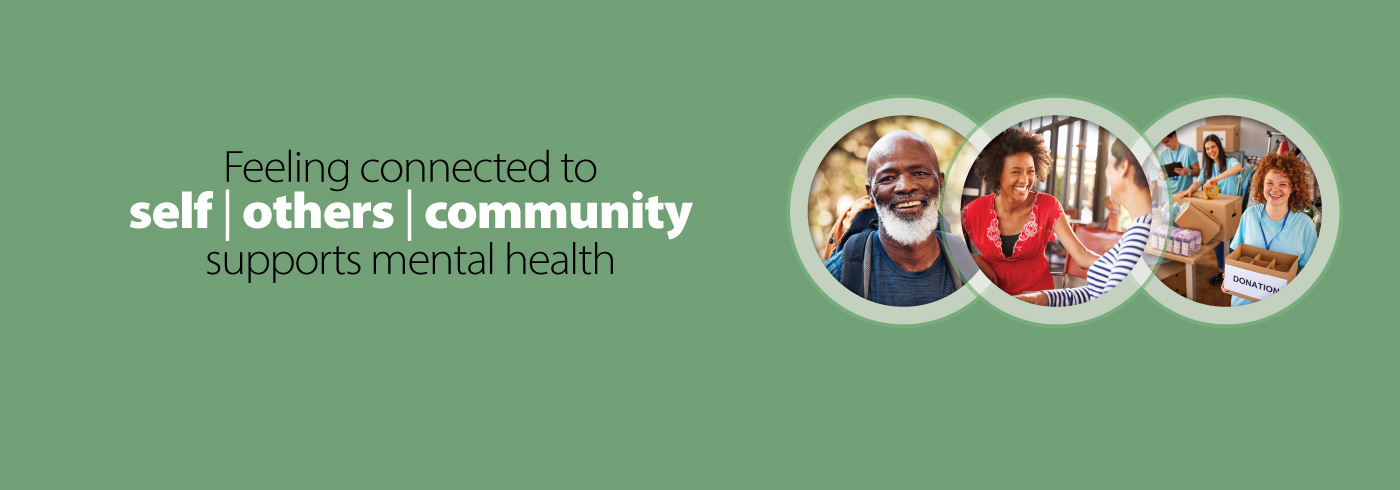Meaningful connections in your life can help your mental and physical health. Being connected to others supports your happiness, resilience and helps you to overcome life's challenges.
Connection is...

Watch our video series!
Public health nurses discuss the importance of connection and mental health
Let’s get connected!
Building connections is a community effort and you have a role to play. There are layers of connections such as: connection to self, connection to others, and connection to community.
Let's start with getting connected to ourselves.
Connection to self helps you to connect with other people in your life in a meaningful way. When you are connected to yourself, you pay attention to your feelings, thoughts and emotions. The practice of mindfulness helps you connect to yourself, be in the present moment, and supports your mental health.
| Free mindfulness supports | Apps: Mindfulness exercises |
|---|---|
|
|
|
Enjoy podcasts? Learn more about mindfulness in the #MindVine Podcast. |
|
When you are connected to others, you can feel a sense of belonging. Having connections to others gives you access to meaningful relationships which helps you feel valued, seen, heard and supports your mental health.
Create time in your day to connect with others:
- Eat lunch with a co-worker or friend.
- Join a class or new activity to meet people with shared interests.
- Take your grandchild, niece, or nephew to the park.
- Schedule video calls with a friend or family member if getting together in person is hard.
Here are some ideas to connect with others in your community:
- 2-1-1 Ontario can connect you to local programs and services where a system navigator can help you discover the right supports for you.
- Local municipalities offer programs for youth to engage with others and get support.
Town of Ajax | Township of Brock | Municipality of Clarington | City of Oshawa | City of Pickering | Township of Scugog | Township of Uxbridge | Town of Whitby - For new parents check out programs in your area, many are run through libraries, community centres, EarlyON centres and can support parents and babies in making new connections.
- For seniors, find a social, cultural, learning and recreational program near you. There are also virtual options.
- If it’s difficult to leave your home, try the Friendly Visiting program.
- Register for Luncheon Out to connect with other seniors over a meal.
Ready to get connected to your community?
Feeling connected to your community is important for your physical and mental health. You can experience improved quality of life, less loneliness and feel like you belong through shared interests, values, and beliefs.
Ready to get involved in your community?
- Volunteer at a community garden.
- Make connections with your faith-based or cultural community.
- Join an activity such as a sport or book club to connect on a shared interest. This can be in person or virtual through the internet.
Get connected with your community by:
- Volunteering - see what’s available near you.
- Exploring and engaging - check out Durham Tourism's web page for ideas.
- Get inspired to do a random act of kindness and consider sharing your experiences.
- Diversity, equity and inclusion helps foster a strong and inclusive community. Find resources and supports available in your community.
Spotlight on... building social connections
Order free connection resources!
Are you a resident or health care professional interested in mental health connection resources? Use our online forms to order free print resources.
Contact Us





